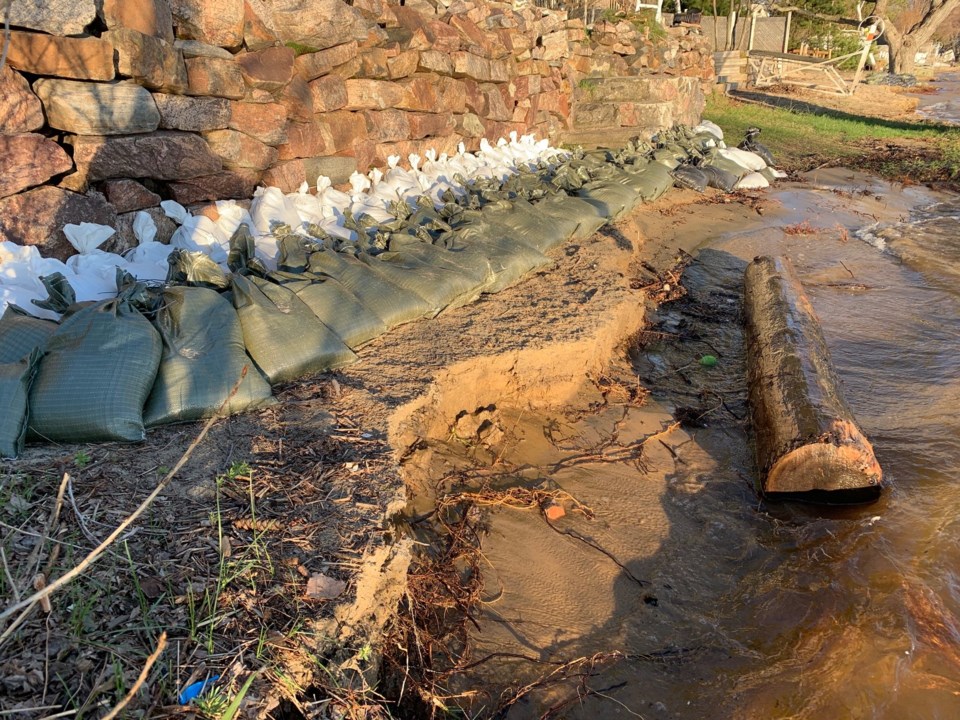A report released today from the "Special Advisor on Flooding" says that widespread flooding in Ontario this spring was caused by numerous factors, but not human error.
In July, Doug McNeil was charged with conducting an independent review of flood management and 2019 flooding events in Ontario. The Special Advisor delivered his report to the Ontario government on October 31, and was released publicly today.
In his review, McNeil confirmed that this year’s record-setting flooding in many parts of the province was caused by a combination of weather conditions: colder-than-average winter and spring, higher-than-average snowpack, lack of significant winter thaw, rapid snowmelt and significant rain events in the spring.
He found that nothing pointed to human error or the negligent operation of water control structures as the cause of the flooding and that the government and its partners were effective at reducing and mitigating flood risks.
"The safety of the public and the protection of our communities is our number one priority,” said John Yakabuski, Minister of Natural Resources and Forestry. “After last spring’s flooding, we recognized that we needed an external perspective on the current roles and responsibilities of the governments, agencies and organizations involved in flood management – someone who could provide independent advice on improvements we can make.
“Mr. McNeil looked carefully at the core components of the Province’s approach to emergency management relative to last spring’s flood season and found that steps taken by individuals, municipalities, dam owners, and other agencies were effective in reducing further potential damage to communities,” said Yakabuski.
“This has been a difficult time for many of our communities and we know that for many Ontarians impacted by the floodwaters, life still hasn’t returned to normal,” said Vic Fedeli, MPP for Nipissing, “We understand the devastating impacts flooding has on our communities and that’s why we are taking action to improve the province’s resiliency to flooding.”
Fedeli says since the spring, the government has taken significant steps.
- Initiated procurement for its first-ever broad, multi-sector provincial climate change impact assessment that will help the province, municipalities, Indigenous communities and other local partners make more informed decisions to keep communities and people healthy and safe.
- Opened the Green Stream infrastructure fund of the Investing in Canada Infrastructure Program (ICIP), enabling smaller municipalities to access approximately $200 million in federal and provincial funding to invest in critical water, waste water and storm water projects.
- Launched a $1 million pilot project under the Municipal Disaster Recovery Assistance program to help municipalities rebuild damaged infrastructure to make it more resilient to extreme weather.
- Made it faster for property owners to get the approvals they need to repair flood-related damage to shorelines.
Fedeli says Ontario has already committed to taking the following actions to address recommendations from the Special Advisor’s report:
- Modernize regulations under the Conservation Authorities Act to have conservation authorities focus on their core mandate of protecting people and property from flooding and other natural hazards.
- Launch a comprehensive review of Ontario’s natural hazard technical guides and guidelines related to flood forecasting and warning.
- Ensure the continued investment of over $4.7 million in the hydrometric (stream gauge) network to enable flood forecasting and flood warnings that help municipalities better prepare for flood events.
Read Ontario’s Special Advisor on Flooding Report at Ontario.ca/floodreport



